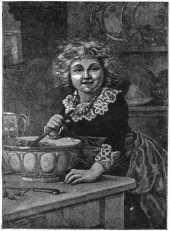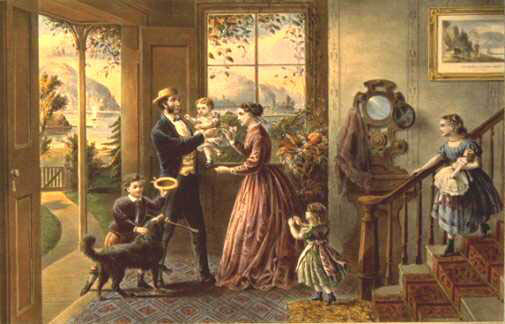
"A Formidable List of Attainments for a Child of Six", a reprint
of a curriculum outline from a CM school in the 1890's.
from Summer 93 Parents Review pub by Karen Andreola
of a curriculum outline from a CM school in the 1890's.
from Summer 93 Parents Review pub by Karen Andreola
To recite, beautifully, six easy poems and hymns.
To recite, perfectly and beautifully, a parable and a psalm.
To add and subtract numbers up to ten, with dominoes or counters.
To read-what, and how much, will depend on what we are told of the child; children vary much in their power of reading.
To copy in print-hand from a book.
To know the points of the compass with relation to their own home, where the sun rises and sets, and the way the wind blows.
To describe the boundaries of their own home.
To describe any lake, river, pond, island within easy reach.
To tell quite accurately (however shortly) Three stories from Bible history, three from early English, and three from early Roman history.
To be able to describe three walks and three views.
To mount in a scrapbook a dozen common wildflowers, with leaves (one every week) ;to name these, describe them in their own words, and say where they found them.
To do the same with the leaves and flowers of six forest trees.
To know six birds, by song, color and shape.
To send in certain Kindergarten or other handiwork, as directed.
To tell three stories about their own "pets"-rabbit, dog, or cat.
To name twenty common objects in French and say a dozen little sentences.
To sing one hymn, one French song, and one English song.
To keep a caterpillar, and tell the life-story of a butterfly from his own observations.
A formidable list of attainments for a child of five or six, but it is nearly all play-work, and to be done out-of-doors. The "sit-still" work should not occupy more than an hour and a half daily, and the time-table will show how all can be done, little by little, by day-by-day efforts. Our aim is to gather up the fragments of the child's desultory knowledge, so that nothing is lost. There is now waste more sad than the waste of those early years when the child's curiosity is keen and his memory retentive, and when he might lay up a great store of knowledge of the world he lives in with pure delight to himself; but this fine curiosity is allowed to spend itself on trivial things, and the retentive memory-does it not some times store the idle gossip of the maids?
Click here for a printer friendly version (at bottom of page): http://www.geocities.com/montistrick/page9.html

No comments:
Post a Comment